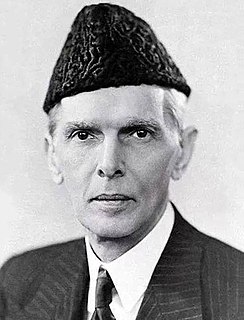A Quote by David Petraeus
Pakistan are very keen to carry out the operations themselves. And there's significant effort on the part of the US and other countries to provide assistance that can enable Pakistan to do just that.
Related Quotes
Obviously Pakistan and the U.S. are very different countries, but we have common geopolitical interests in preventing communist take over in Afghanistan and hence, now that Pakistan has a government that we can cooperate with, even though it is a military government, we are working together with them in order to promote our common interests. But obviously we also differ with Pakistan on a number of issues.
Pakistan is alarmed by the rising Indian influence in Afghanistan, and fears that an Afghanistan cleansed of the Taliban would be an Indian client state, thus sandwiching Pakistan between two hostile countries. The paranoia of Pakistan about India's supposed dark machinations should never be underestimated.
The authorization I propose would provide the flexibility to conduct ground combat operations in other more limited circumstances, such as rescue operations involving U.S. or coalition personnel or the use of special operations forces to take military action against ISIL leadership, it would also authorize the use of U.S. forces in situations where ground combat operations are not expected or intended, such as intelligence collection and sharing, missions to enable kinetic strikes or the provision of operational planning and other forms of advice and assistance to partner forces.
Some people in America feel that Pakistan is being nice to us, and that we should walk away fro mthem. But Pakistan is important to the region, to the world and to us, because Pakistan has 100 nuclear warheads and they're rushing to build a lot more. They'll have more than Great Britain sometime in the - in the relatively near future.
Pakistan always seems to have a lot of political complexities and political challenges. But Pakistan is important for a number of reasons. Primarily, it is a nuclear power. And if, in fact, al Qaeda and Taliban, which are in Pakistan and causing a lot of tragedies and deaths in Pakistan - if they would ever somehow have real influence and control of that government, then we [world] really have a problem.
The real concern is that Iran would do what Pakistan did. Pakistan wanted nuclear weapons, like Iran, purely for defensive reasons - to defend itself against India. The problem was that once Pakistan acquired the weapons, it allowed the country to be more aggressive. So they stepped up their support for the Kashmiri terrorists, and it led very quickly to the Kargil crisis in 2000, which almost sparked a nuclear war between India and Pakistan.
The second part of that war was that Muslims came from all over the country to Pakistan, and they met each other. For the first time those men had an awareness of the Islamic world as a whole, not of just Egypt or Algeria or Indonesia, but of what Muslims call the Uma, the Islamic community. And that's an extraordinarily important thing. And that emanated in Pakistan.
Pakistan is not going to be a theocratic State - to be ruled by priests with a divine mission. We have many non-Muslims - Hindus, Christians, and Parsis - but they are all Pakistanis. They will enjoy the same rights and privileges as any other citizens and will play their rightful part in the affairs of Pakistan.




































